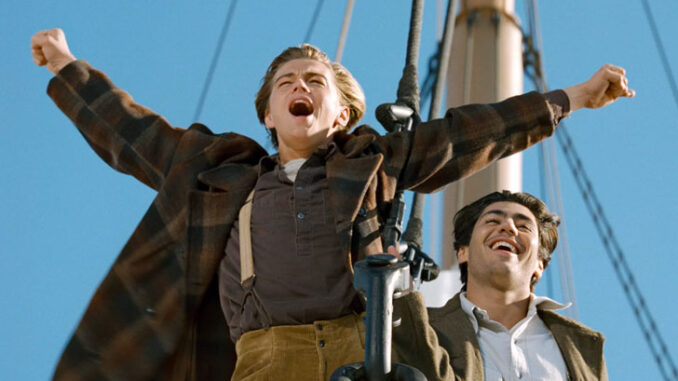
"I'm the King of the World!": A Line Almost Lost to the Sea
Leonardo DiCaprio's career is studded with iconic moments, but perhaps none resonates quite like the triumphant roar echoing across the Atlantic: "I'm the king of the world!" The scene, perched on the bow of the ill-fated Titanic, is arguably one of the most recognizable in cinematic history, instantly conjuring images of youthful exuberance, boundless optimism, and the bittersweet tragedy that awaited. Yet, the story of how this seemingly perfect line came to be reveals a fascinating truth: "I'm the king of the world!" was almost never uttered, a testament to the power of improvisation and the subtle magic that can transform a good scene into a legendary one.
The initial script for Titanic, while meticulously researched and richly detailed, lacked the precise verbiage that would eventually encapsulate Jack Dawson's character. Director James Cameron, known for his exacting vision and technological innovation, also understood the importance of capturing authentic emotion. In the moment when Jack and Rose stand at the bow, sharing a stolen, fleeting intimacy, the script likely only provided a general direction: Jack, overwhelmed by the beauty and immensity of the ocean, should express his newfound freedom and joy.
Enter Leonardo DiCaprio, a young actor brimming with raw talent and an intuitive understanding of his character. He wasn't the conventional leading man of his era, but possessed a vulnerability and charisma that captivated audiences. During filming, the weather conditions were often harsh, the set a chaotic swirl of hundreds of extras, and the pressure to deliver a historically accurate and emotionally compelling story was immense. In this atmosphere of intense focus, Cameron encouraged his actors to explore the boundaries of their roles, to bring their own personalities and interpretations to the table.
The moment arrived on set, the wind whipping around them, the vastness of the ocean stretching to the horizon. As Kate Winslet, as Rose, leaned into Jack, feeling the cool spray on her face, DiCaprio, in that instant, didn't deliver a pre-ordained line. Instead, drawing on the primal joy and liberation that Jack was experiencing, he simply yelled, "I'm the king of the world!"
The spontaneity of the moment was palpable. It wasn't a polished, Shakespearean pronouncement; it was a raw, unbridled expression of pure, unfiltered emotion. It was the kind of phrase a young, working-class artist, suddenly finding himself on the precipice of adventure and possibility, might actually shout. It felt real, it felt authentic, and it resonated with the core themes of the film: dreams, freedom, and the fleeting beauty of life.
The power of the line lies in its simplicity. It wasn't a carefully crafted monologue designed to impress or persuade. It was a declaration, a bold proclamation of self-discovery and empowerment. In that moment, Jack wasn't just a poor artist; he was a king, ruling over his own destiny, his heart overflowing with hope. The line's ironic undertones, of course, added another layer of depth, knowing the impending tragedy that awaited.
While the genesis of the line remains shrouded in the mists of film lore, with some attributing it solely to Cameron's direction, the overwhelming consensus points towards DiCaprio's improvisation as the spark that ignited its brilliance. Had DiCaprio stuck to a pre-written line, the scene might have still been effective, but it likely wouldn't have achieved the iconic status it holds today.
In conclusion, "I'm the king of the world!" serves as a potent reminder of the magic that can happen on a film set when talent, vision, and a willingness to embrace the unexpected collide. It highlights the crucial role of improvisation in breathing life into characters and imbuing scenes with authenticity. The line, almost never happening, became a cornerstone of Titanic's enduring legacy, forever etched in the collective memory of cinema lovers worldwide. It stands as a testament to the power of a simple, spontaneously delivered phrase to encapsulate the hopes, dreams, and ultimately, the tragedy of a young man lost to the sea. It's a reminder that sometimes, the most impactful moments are those born not from rigid planning, but from the unscripted depths of the human heart.